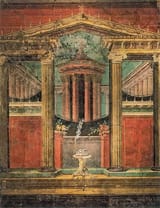Anonymous
7/6/2025, 5:08:17 AM No.24525170
Put religion and socio-economic issues to the side here. What part of this trinity is the best path? Each one draws upon ancient beliefs about sacred geometry, consciousness, and the nature of existence.
Merkaba (revelation/realization/moral)
Kabbalah (explanation/reference/material)
Masonry (Achillean [or sapphism]/material and moral)
The ancient Greek philosopher Aristotle pointed out the problem with common resources: "What is common to many is taken least care of, for all men have greater regard for what is their own than for what they possess in common with others." Aristotle (384-322 BC), a Greek philosopher and scientist, taught Alexander the Great (356-323 BC). He tutored Alexander the Great from c.342-c.339 BC.
excerpt: "...is there a real turn towards the classical past as a source of insight, as a new phenomenon – and, if so, how far does this reflect a crisis of Enlightenment analysis and values, such that they are no longer felt to be adequate?"
from: https://thesphinxblog.com/2016/12/15/achilles-as-philosopher/
Merkaba (revelation/realization/moral)
Kabbalah (explanation/reference/material)
Masonry (Achillean [or sapphism]/material and moral)
The ancient Greek philosopher Aristotle pointed out the problem with common resources: "What is common to many is taken least care of, for all men have greater regard for what is their own than for what they possess in common with others." Aristotle (384-322 BC), a Greek philosopher and scientist, taught Alexander the Great (356-323 BC). He tutored Alexander the Great from c.342-c.339 BC.
excerpt: "...is there a real turn towards the classical past as a source of insight, as a new phenomenon – and, if so, how far does this reflect a crisis of Enlightenment analysis and values, such that they are no longer felt to be adequate?"
from: https://thesphinxblog.com/2016/12/15/achilles-as-philosopher/
